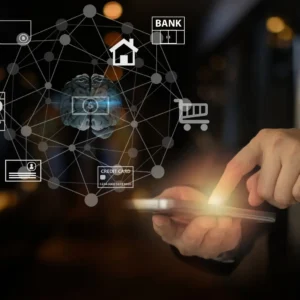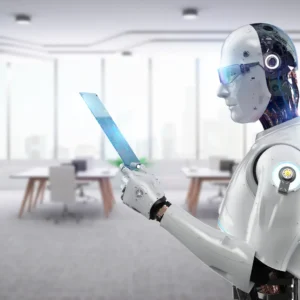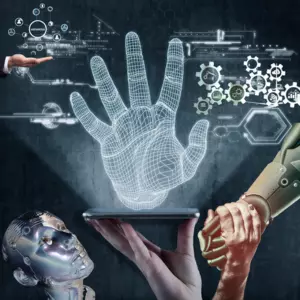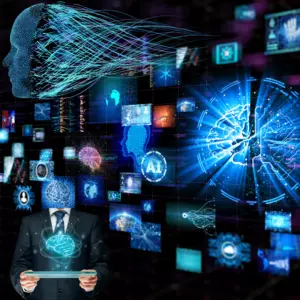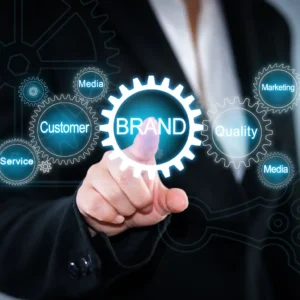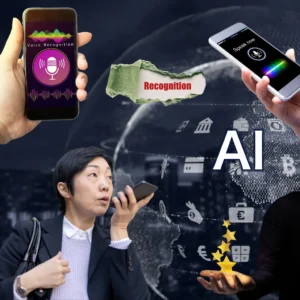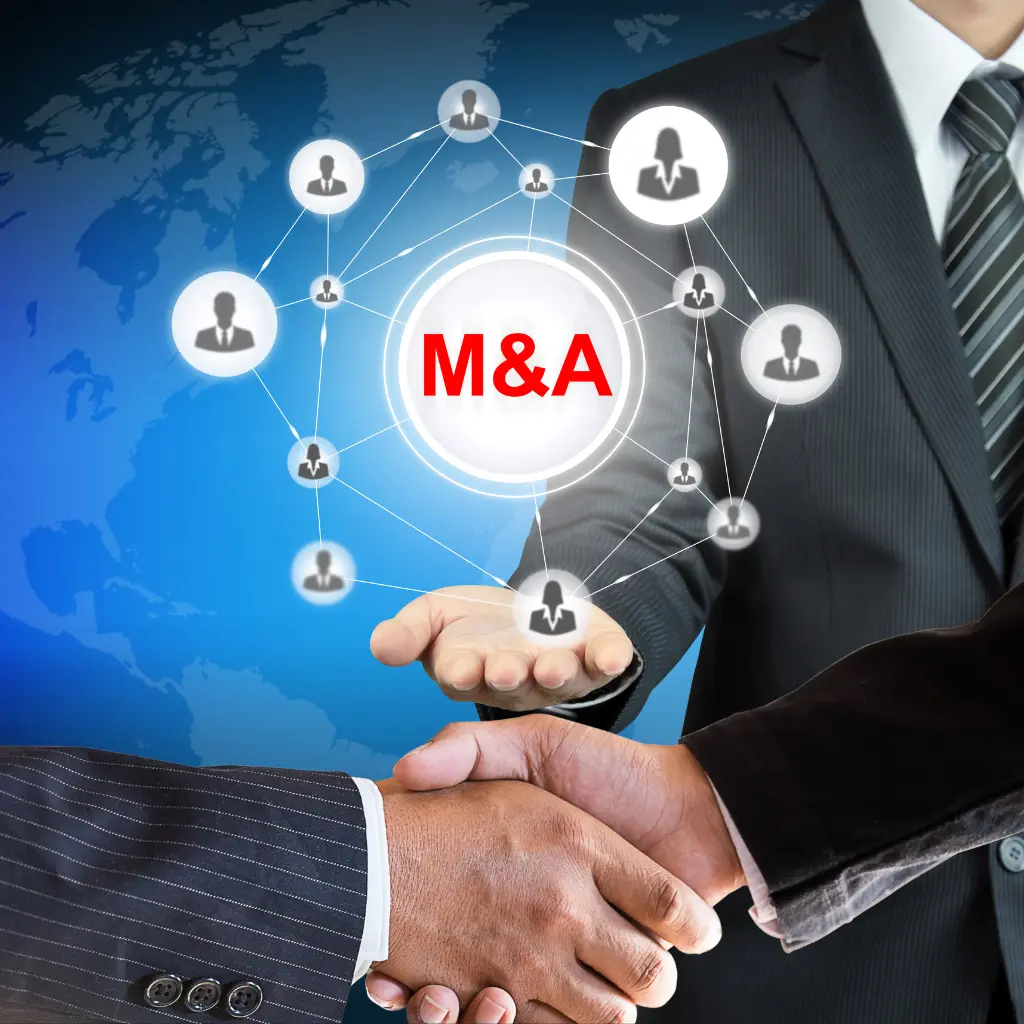
Deals and Due Diligence
AI in Mergers And Acquisitions
The world of Mergers and Acquisitions is undergoing a radical transformation. Artificial Intelligence is at the heart of this evolution, reshaping how businesses merge, acquire, and value potential partnerships.
From streamlining due diligence to providing unparalleled insights through predictive analytics, AI’s impact is undeniable. But this journey isn’t without its challenges. Questions arise about AI’s ethical considerations in M&A, its broader economic implications, and the necessary training for seamless integration.
With case studies revealing success stories and trends hinting at the future, this article unravels the expansive tapestry of AI in Mergers And Acquisitions, offering a comprehensive gaze into its transformative role, potential risks, and the preparation required for businesses poised at this exciting juncture.
Table of Contents
The Mergers And Acquisitions landscape today
The world of Mergers And Acquisitions (M&A) has always been dynamic. With increasing global competition, firms constantly seek to expand their reach or refine their portfolios. Yet, traditional methods of deal-making are undergoing a seismic shift. Gone are the days when decisions rested solely on gut instincts. Instead, AI in Mergers And Acquisitions data analytics paves the way for more innovative, data-driven insights. Companies now harness predictive analytics for Mergers And Acquisitions outcomes to anticipate potential roadblocks and assess the profitability of prospective deals.
With such tools, the promise of streamlining due diligence becomes more achievable. Analysts can quickly sift through vast datasets to ensure critical details are noticed, with errors corrected. Moreover, AI in valuations and pricing offers a more accurate picture of a company’s worth, reducing the chances of over or undervaluation. However, this AI evolution has challenges. As with any potent technology, there’s a need for robust risk management with AI. Concerns about ethical considerations in AI Mergers And Acquisitions loom significant, with implications for businesses and these deals’ broader economic implications.
So, how are companies and their teams adapting to all these advancements? And what does this mean for training for AI-driven Mergers And Acquisitions? As we delve deeper, how is AI reshaping the core of M&A strategies?
AI's transformative role
Building on our exploration of today’s Mergers And Acquisitions landscape, we see AI at the forefront of change. This isn’t just another tech trend; it’s a revolution. AI in Mergers And Acquisitions data analytics doesn’t just aid the process—it transforms it. With it, we’re not just speeding up the old ways but reshaping strategies altogether.
One standout feature is how predictive analytics for Mergers And Acquisitions outcomes offers foresight. Businesses can now gauge the viability of a deal long before inking the dotted line. And it’s not just about predicting success but also identifying and mitigating risks. Leveraging risk management with AI ensures that companies aren’t diving into the unknown.
Furthermore, the exactness brought about by AI in valuations and pricing is unparalleled. Deals become less of a gamble and more of a calculated strategy. However, the rush to adopt AI brings about its challenges. There’s a rising debate about ethical considerations in AI Mergers And Acquisitions. Questions about data privacy, equity, and transparency are more crucial than ever.
But how does AI simplify the intricate process of M&A? Specifically, how is it making due diligence, a notoriously time-consuming task, more manageable?
Due diligence made efficient
Delving into AI’s impact on Mergers And Acquisitions, it’s impossible to overlook the monumental shift in due diligence. Once a painstaking, manual process, today’s due diligence is in the midst of an AI revolution. How, you ask? Through streamlining due diligence.
AI’s ability to process vast data sets at lightning speed makes it a game-changer. AI in Mergers And Acquisitions data analytics permits firms to scour databases, contracts, and financial records rapidly. What once took weeks or months only requires a fraction of the time. Early identification of potential M&A risks with predictive analytics helps informed decision-making.
Of course, with great power comes great responsibility. Relying heavily on AI necessitates robust risk management with AI strategies. Overlooking this could lead to disastrous outcomes, particularly if AI tools misinterpret data or get fed biased information. This highlights the undoubted significance of ethical considerations in AI Mergers And Acquisitions.
Given AI’s prowess in expediting due diligence, one can’t help but wonder about its influence on other aspects of M&A. Specifically, how is AI reshaping the critical task of determining a company’s worth in deals?
AI-driven company valuations
As we unravel the wonders of AI in due diligence, a closely linked marvel emerges—AI in valuations and pricing. Gauging a company’s value in Mergers And Acquisitions has always been intricate. Traditional models were heavily reliant on historical data and static market conditions. Now, enter AI, and the narrative transforms.
Predictive analytics for Mergers And Acquisitions outcomes offers insights that transcend past patterns. By integrating diverse data sources and considering real-time market dynamics, AI-driven tools paint a more accurate picture of a company’s worth. And it’s not just about numbers. AI in Mergers And Acquisitions data analytics also uncovers qualitative insights, discerning nuances like company culture and brand value.
Yet, there’s a caveat. Harnessing AI for valuations presents its challenges. The complexity of algorithms and the ever-evolving economic implications necessitate continuous recalibration. With effective risk management with AI, businesses might succeed, resulting in sub-optimal deals or overvaluations. The discussions on ethical considerations in AI Mergers And Acquisitions further underscore the need for diligence in AI-based valuation approaches.
But, with AI redefining valuations, one ponders: what safeguards are in place? How are businesses ensuring that the tremendous power of AI is wielded judiciously in M&A?
Managing risks with AI
The revolutionary realm of AI-driven company valuations raises a pressing question: how do we harness AI’s power without falling into unforeseen pitfalls? The answer lies in adept risk management with AI.
In Mergers And Acquisitions, risks can emerge from various quarters. Data inaccuracies, algorithm biases, or external market volatilities can skew AI outputs. However, companies can proactively identify and address these challenges by leveraging AI in Mergers And Acquisitions data analytics. AI tools can use predictive analytics to forecast potential issues during Mergers And Acquisitions, enabling businesses to address them proactively.
But there’s another dimension—training. Training for AI-driven Mergers And Acquisitions ensures that professionals can adeptly navigate AI tools, understand their outputs, and make informed decisions. Equipped teams, cognizant of economic implications, can then strike deals that are not just profitable but also sustainable.
As we marvel at AI’s potential in risk management, a pertinent issue looms large. How do companies ensure that AI-driven strategies align with moral and ethical standards? And in the fast-paced world of M&A, how do we navigate the complex interplay of ethics and technology?
Ethical Dilemmas in Mergers And Acquisitions
Navigating the intricacies of risk management leads us to a more profound conundrum: the ethical considerations in AI Mergers And Acquisitions. Considering the ethical implications of using artificial intelligence in deal-making is crucial.
First, there’s data. AI in Mergers And Acquisitions data analytics heavily relies on vast data sets. But where is this data sourced from? Is it acquired ethically, and are our privacy rights upheld? These are questions companies cannot afford to overlook. Then, there’s the AI itself. With predictive analytics for Mergers And Acquisitions outcomes, there’s a risk of algorithmic biases. Such biases could favour specific deals over others, leading to unfair practices.
Training for AI-driven Mergers And Acquisitions is crucial here. Professionals with ethical training must have moral training to guarantee the responsible use of AI tools. Any spelling, grammar, or punctuation errors have been corrected. They can also be vigilant about potential pitfalls, keeping economic implications and societal impacts in mind.
Moreover, as AI-driven strategies reshape the M&A world, there’s a pressing need for clear regulatory guidelines. Stakeholders, from businesses to policymakers, must collaborate to set boundaries that uphold ethical standards.
With ethics at the forefront, one wonders how these AI-driven M&A strategies influence the broader economy. How do these deals, powered by AI, shape industries, job markets, and global financial landscapes?
Economic considerations
Emerging from the ethical intricacies of AI-driven M&A, we confront a broader landscape: the economic implications. As AI weaves through Mergers And Acquisitions, its ripple effect on economies can’t be understated.
The immediacy and precision AI offers in valuations and pricing can lead to swifter deals. This could accelerate market consolidations and shape industrial landscapes. While some sectors may burgeon, others might face challenges. Furthermore, predictive analytics for Mergers And Acquisitions outcomes might prompt companies to venture into previously uncharted territories, diversifying portfolios and invigorating job markets.
Yet, it’s not all rosy. A heavy reliance on AI in Mergers And Acquisitions data analytics could phase out traditional roles, reshaping the job landscape. Training for AI-driven Mergers And Acquisitions becomes paramount, ensuring professionals remain relevant in this evolving ecosystem.
Additionally, AI-driven strategies could influence global financial flows. With AI streamlining due diligence and reducing barriers, cross-border M&A could surge, impacting trade balances and capital movements.
But, as the economic dynamics shift, how are companies and professionals gearing up? Are they equipped to navigate this brave new world of AI-driven M&A? What steps are essential for success in such a landscape?
Preparing for AI-driven deals
Companies and professionals are pivoting in response to the shifting economic currents of AI in M&A. How are they bracing for the nuances of AI-Driven Mergers And Acquisitions?
The cornerstone is training for AI-driven Mergers And Acquisitions. Modern M&A professionals aren’t just financial experts; they’re evolving into tech-savvy analysts. They delve into AI in Mergers And Acquisitions data analytics, grasping its intricacies and gleaning actionable insights. They’re mastering predictive analytics for Mergers And Acquisitions outcomes, allowing them to forecast deal success with sharper accuracy.
Beyond the individual, companies are also metamorphosing. Streamlining due diligence processes with AI isn’t an afterthought—it’s central. Efficient algorithms dig deep, scrutinizing potential partners for risks and rewards. Moreover, as AI in valuations and pricing grows, companies revisit their financial models, ensuring they’re AI-compatible and responsive.
The ecosystem is also seeing collaborative efforts. Case studies of AI-assisted deals serve as learning modules, helping professionals understand the do’s and don’ts of AI in M&A. As technology advances, the blueprint is the synergy between human acumen and AI precision.
Yet, one must ponder: What does tomorrow hold as we streamline and enhance today’s processes? What are the emerging trends shaping the future of Mergers And Acquisitions?
Future Trends in Mergers And Acquisitions
As we align human expertise with the precision of AI, we enter a realm of limitless potential. But what does the horizon of AI-Driven Mergers And Acquisitions reveal?
Emerging trends suggest an intensifying symbiosis between AI in Mergers And Acquisitions data analytics and strategy formulation. AI won’t merely provide data; it will shape deal narratives. As companies dive deeper into predictive analytics for Mergers And Acquisitions outcomes, we may see more proactive rather than reactive M&A strategies.
Further, the scope of streamlining due diligence will expand. With AI’s capacity to digest and decode vast data troves, real-time due diligence could become the norm. This immediacy might redefine how businesses evaluate M&A opportunities.
It’s no secret that with the rapid progress of artificial intelligence, ethics is becoming increasingly critical. We all know that small grammar, spelling, or punctuation errors can make a big difference, so paying attention is essential.
One area where ethical considerations will play a more significant role is mergers and acquisitions. Making moral choices will be crucial in this world, so staying vigilant and keeping ethics at the forefront is essential.
These deals’ transparency, fairness, and accountability will be scrutinized as AI tools become increasingly sophisticated. Ethics will play a pivotal role in shaping the future of AI-powered M&A activities.
Lastly, cross-industry M&As might gain momentum. With AI deciphering patterns across diverse sectors, unexpected yet symbiotic partnerships could emerge, reshaping business landscapes.
With these transformative shifts on the horizon, one must contemplate: As AI reinvents M&A’s very fabric, how will businesses and economies adapt and thrive in this brave new world?
Conclusion
The journey through AI-Driven Mergers And Acquisitions unveils a future teeming with potential and dynamism. AI’s role is undeniably profound, from the evolving landscape of today’s M&A to the transformative trends on the horizon.
As companies become adept at leveraging AI in Mergers And Acquisitions data analytics, the world of deals will experience unparalleled efficiency. Predictive analytics for Mergers And Acquisitions outcomes promises foresight and the ability to chart proactive strategies. Yet, as we’ve seen, with enhanced capabilities come new challenges. Streamlining due diligence with AI will redefine partnerships, urging firms to master real-time evaluations and to act swiftly.
Using AI in valuations and pricing enhances data-driven confidence for M&A decisions. But with this comes the weight of risk management with AI—ensuring businesses navigate the intricacies of deals with both intelligence and caution.
Ethical considerations in AI Mergers And Acquisitions take centre stage, reminding us that technological advancements must walk hand-in-hand with moral responsibility. The broader economic implications remind businesses to adapt and prepare for profit and to shape a resilient economic fabric.
The necessity of training for AI-driven Mergers And Acquisitions echoes throughout, emphasizing the need for a harmonious blend of human expertise and AI prowess. The insightful case studies of AI-assisted deals further carve the path for what’s possible.
In conclusion, as we stand at this juncture, the union of M&A and AI paints a vibrant tapestry of challenges, opportunities, and transformative potential. By embracing these shifts, businesses can navigate, adapt, and thrive in AI-driven M&A.
Related Articles
- Navigating Financial Regulations with AI: A New Era of Compliance
- Conversations with AI: The Rise of Banking Chatbots
- Hedging with Intelligence: AI’s Take on Hedge Funds
- AI Shields – Financial Fraud Detection and Prevention Systems
- AI in Real Estate Financing – Smarter Investment
- AI in Seamless Payments – The Future of Transaction Processing
- AI-Powered Tax Data Analysis – Compliance and Audits
- AI-driven Wealth Preservation – Tailoring Financial Legacies
- Robo-Advisors – The Digital Age of Investment Guidance
- Deciphering Creditworthiness with AI-driven credit scoring models
- From Cash to Code: How AI Powers Digital Wallet Evolution
- AI-Powered Financial Planning: Personalizing Your Journey
- The AI-Enhanced Insurer: Personalizing and Streamlining Claims
- Redefining Investment with AI: A New Era of Asset Management
- AI’s Role in Modern Banking: Revolutionizing the Financial World
- Harnessing the Power of IPA Tools in Finance: Use Cases, Advantages, and Challenges
- Other Articles on AI Usage in the Financial Sector
- Other Articles on AI usage in different industries

Arindam Roy
An Automation Consultant with 25+ years of IT Experience
Forbes Articles related to AI usage in the Financial Sector:
- The Future Of Data And AI In The Financial Services Industry
- The Future Of AI In Banking
- Generative AI: Transforming The Future Of Finance
- Artificial Intelligence Opens Up The World Of Financial Services
- The Benefits Of Customer Experience AI For Financial Institutions
- AI Adoption: The ‘A-Ha’ Moment For Finance Leaders And How To Take Advantage Of AI’s Potential
- Artificial Intelligence May Actually Help Humanize Financial Services


